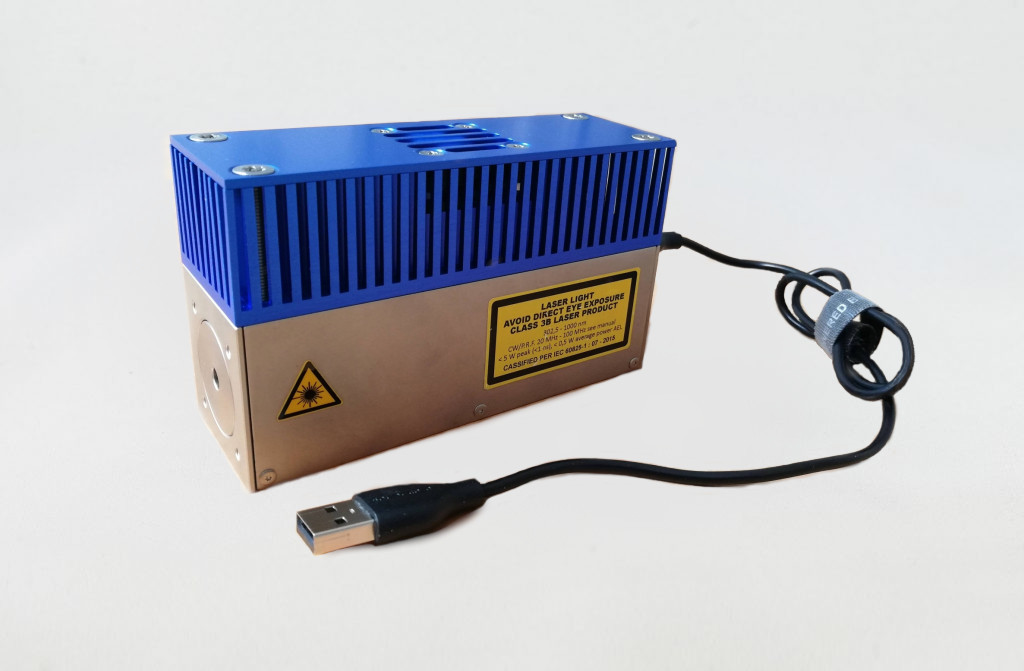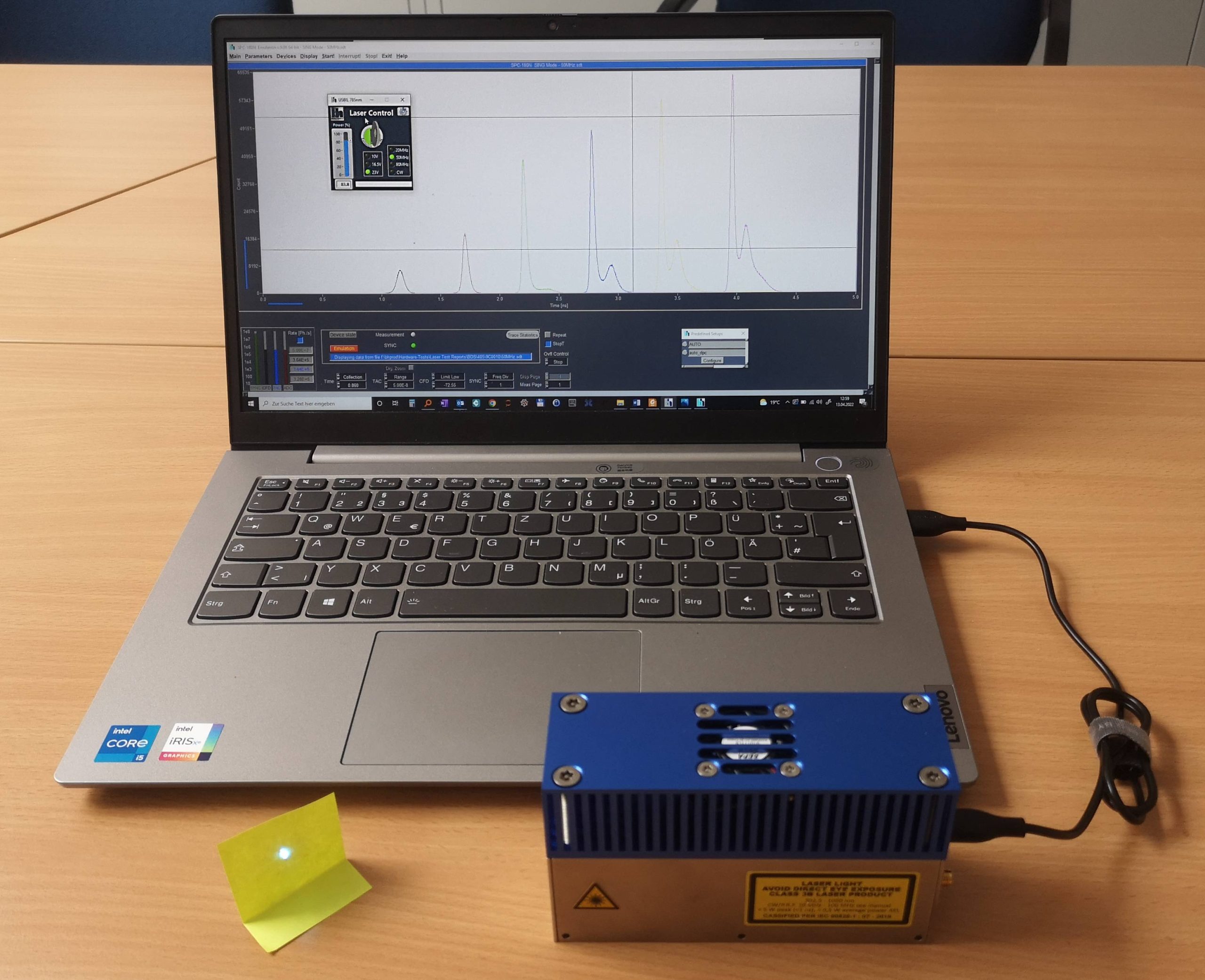
- Small-Size, 40 mm x 80 mm x 120 mm
- USB Interface
- Power Supply from USB Port
- No External Controller, No External Power Supply
- Wavelengths from 375 nm to 785 nm
- Pulse Repetition Rate 20, 50 and 80 MHz
- Pulse Width Down to 40 ps
- Fast ON / OFF / Multiplexing Capability
- Trigger In (On Request)
- Excellent Timing Stability
- Excellent Power Stability
- No Warm-Up Time
- Free-Beam or Single-Mode Fibre Output
- Free-Beam Power in Pulsed Mode up to 3 mW
- Internal Power Stabilisation Loop
- USB 3.0, USB 2.0 Compatible
- Compatible with all bh TCSPC Devices
Description
The BDU-SM series picosecond diode lasers are fully controlled and powered via a USB interface. Available wavelengths range from 375 nm to 785 nm. The lasers are available with circular free-beam output, and with single-mode fibre output.
As the BDS-SM lasers, also the BDU-SM lasers feature extraordinarily high timing stability and intensity stability. The optical pulse versus the electrical trigger output shifts by no more than 2 picoseconds over 10 minutes, even immediately after turn on. The power is stable within 1 %. No warm up-time is necessary for stable operation. Small size, absence of external components, and easy control of the laser parameters make the laser first choice for quick setup of experiments in a typical laboratory environment.

